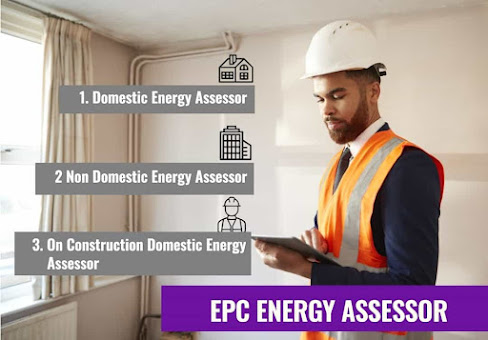The Key Reasons to Hire Domestic Energy Assessor to Get Epc Certificate in Leigh-On-Sea
A certified individual who evaluates the energy efficiency of residential structures in particular nations—most frequently the UK—is known as a Domestic Energy Assessor (DEA). Their primary duty is to generate Energy Performance Certificates (EPCs), which are mandated by law for residential property sales and rentals. When they tour residences, they take notes on various details such as building type, age, insulation, heating systems, and window kinds.
They gather information and do calculations: Using specialist software, they calculate the property's estimated energy efficiency taking into account a number of different criteria. They make sure that evaluations are carried out truthfully, unbiased, and in accordance with industry standards by adhering to the pertinent laws and norms regulating energy performance assessments and EPCs.
For the purpose of keeping their accreditation current and staying abreast of industry advancements, they could periodically go through training and certification. They convey the results of the energy assessment to the agent, landlord, or owner of the property, clearly explaining the energy performance rating of the asset and offering suggestions for enhancing its energy efficiency. They could also provide advice on renewable energy sources, government incentives, and energy-saving techniques.
What Does Domestic Energy Assessor Play an Important Role?
Domestic Energy Assessor is essential in a number of critical sectors pertaining to sustainability, energy efficiency, and the housing industry. By evaluating residential properties and giving landlords, renters, and homeowners useful information on their energy performance, they help to promote energy efficiency. DEAs assist people and families in minimizing their environmental impact, cutting utility costs, and reducing their energy usage by identifying areas for improvement and suggesting energy-saving strategies.
Through the assessment of properties in compliance with energy efficiency requirements and laws, they facilitate the advancement of sustainable housing practices. DEAs assist in ensuring that new and existing residential dwellings satisfy minimum energy efficiency criteria by carrying out energy assessments and issuing Energy Performance Certificates (EPCs), which promotes the development of sustainable and environmentally friendly houses.
All things considered, domestic energy assessors are crucial in advancing sustainability, energy efficiency, and openness in the residential housing market. DEAs assist people, organizations, and governments in their efforts to create a future that is more environmentally conscious, energy-efficient, and sustainable by their evaluations, suggestions, and knowledge.
Why Choose EPCGo to Get EPC Certificate?
In order to promote energy efficiency and benefit purchasers, tenants, landlords, homeowners, and the environment, EPC certifications are essential. A more sustainable future may be achieved by investing in an Epc Leigh-On-Sea, which is a worthwhile endeavor whether you're renting, selling, or just wanting to upgrade your house. If your property has an A-C or better EPC rating, it will be more appealing to prospective renters or purchasers who are ready to pay a premium for energy efficiency and lower operating expenses.
Here at EPCGo, we are committed to advancing compliance, transparency, and energy efficiency in the built environment. EPC providers assist property owners, landlords, renters, and other stakeholders in making educated decisions regarding energy usage, lowering energy consumption, and improving energy efficiency by carrying out energy assessments, issuing EPCs, and offering recommendations for improving energy efficiency. In order to be eligible to do energy assessments and provide EPCs, WE must complete training, certification, and accreditation requirements.
In order to keep Epc Leigh-On-Sea accreditation and offer their clients high-quality services, they keep up with changes in industry standards, technological improvements, and energy efficiency legislation. We give suggestions and counsel to renters, landlords, and owners of real estate on how to lower energy expenses and increase energy efficiency. To increase the energy performance of the property, they could recommend energy-saving changes including lighting, heating system, insulation, and renewable energy installations.




Comments
Post a Comment